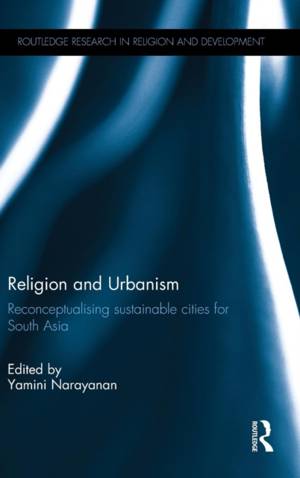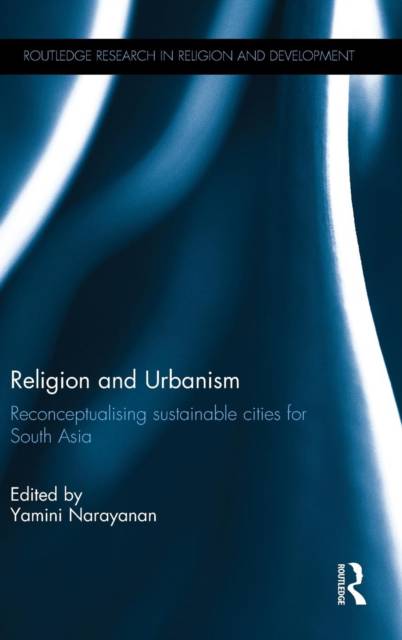
- Afhalen na 1 uur in een winkel met voorraad
- Gratis thuislevering in België vanaf € 30
- Ruim aanbod met 7 miljoen producten
- Afhalen na 1 uur in een winkel met voorraad
- Gratis thuislevering in België vanaf € 30
- Ruim aanbod met 7 miljoen producten
Religion and Urbanism
Reconceptualising Sustainable Cities for South Asia
Omschrijving
Conceptions of 'sustainable cities' in the pluralistic and multireligious urban settlements of developing nations need to develop out of local cultural, religious and historical contexts to be inclusive and accurately respond to the needs of the poor, ethnic and religious minorities, and women.
Religion and Urbanism contributes to an expanded understanding of 'sustainable cities' in South Asia by demonstrating the multiple, and often conflicting ways in which religion enables or challenges socially equitable and ecologically sustainable urbanisation in the region. In particular, this collection focuses on two aspects that must inform the sustainable cities discourse in South Asia: the intersections of religion and urban heritage, and religion and various aspects of informality.
This book makes a much-needed contribution to the nexus between religion and urban planning for researchers, postgraduate students and policy makers in Sustainable Development, Development Studies, Urban Studies, Religious Studies, Asian Studies, Heritage Studies and Urban and Religious Geography.
Specificaties
Betrokkenen
- Uitgeverij:
Inhoud
- Aantal bladzijden:
- 216
- Taal:
- Engels
- Reeks:
Eigenschappen
- Productcode (EAN):
- 9780415745208
- Verschijningsdatum:
- 7/12/2015
- Uitvoering:
- Hardcover
- Formaat:
- Genaaid
- Afmetingen:
- 156 mm x 234 mm
- Gewicht:
- 512 g

Alleen bij Standaard Boekhandel
Beoordelingen
We publiceren alleen reviews die voldoen aan de voorwaarden voor reviews. Bekijk onze voorwaarden voor reviews.










